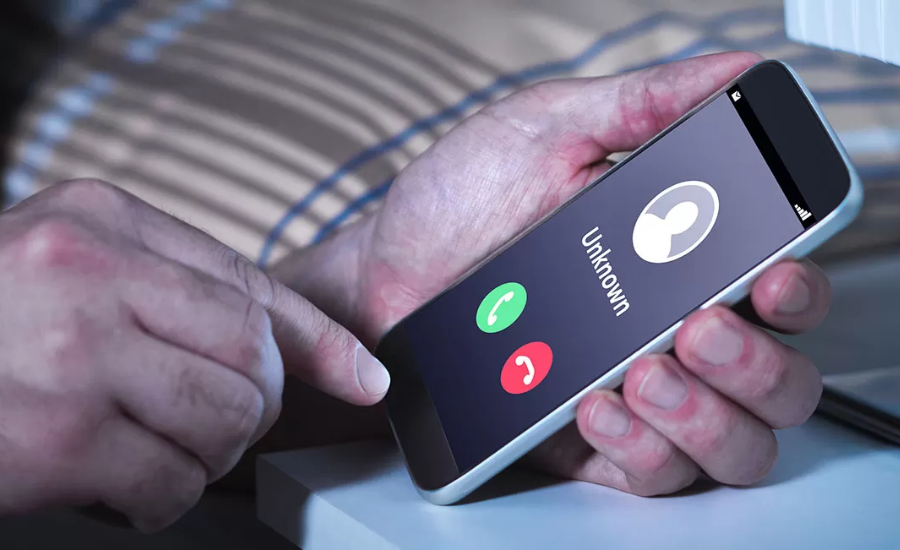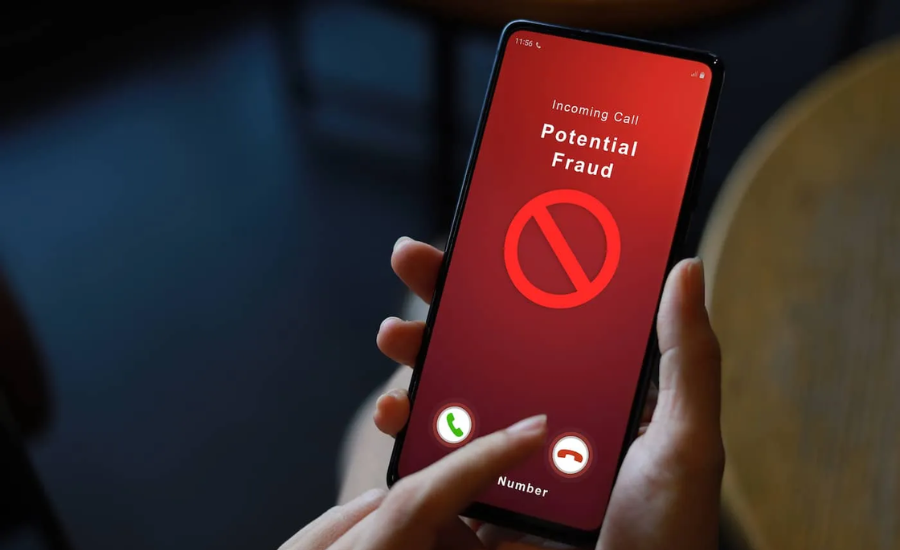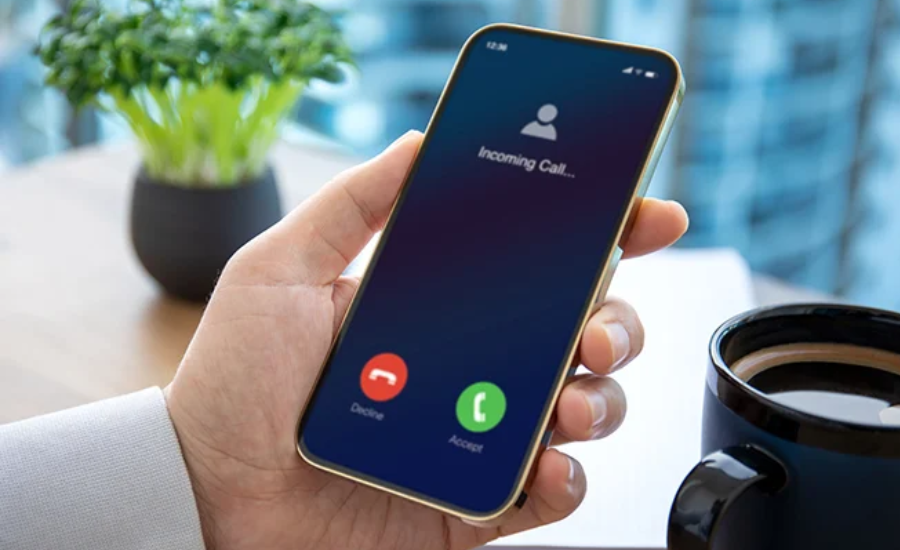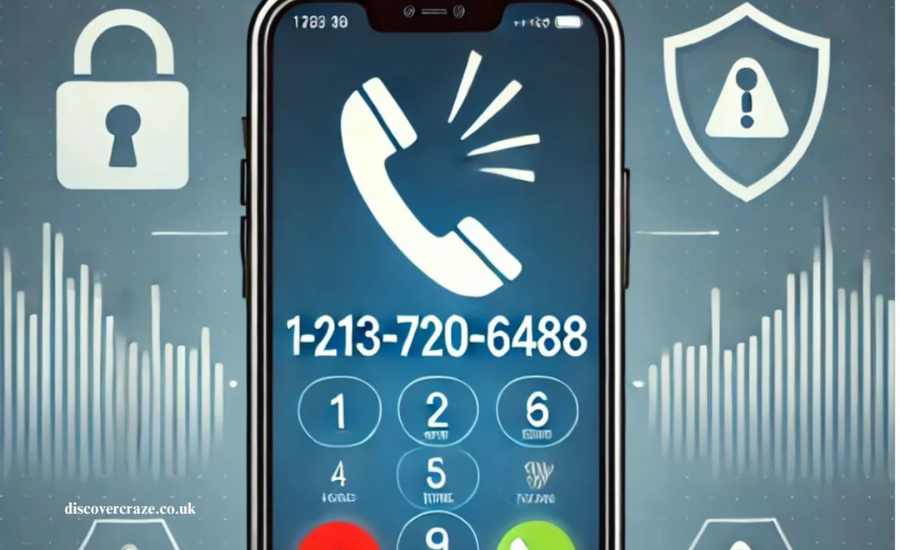In the current era of digital communication, the ease of using mobile devices can sometimes be overshadowed by the frustration and potential risks associated with unknown callers. Many individuals frequently encounter numbers like 1-213-720-6488 appearing on their screens, prompting questions about the identity of the caller and the intent behind these calls. It’s crucial to determine whether these calls are benign or if they pose a genuine threat to your personal information and security. This discussion aims to provide valuable tips on managing unwanted calls effectively while protecting your privacy. If you find yourself overwhelmed by constant ringing or worried about the possibility of privacy invasions, our comprehensive advice and strategies will help you take control.
With the increasing prevalence of unsolicited calls, it’s essential to adopt a proactive approach to safeguard your personal information. Understanding how to identify and deal with suspicious numbers, such as 1-213-720-6488, is a vital step in maintaining your privacy. By utilising tools and strategies designed to filter out unwanted communications, you can significantly reduce interruptions and enhance your sense of security. Our guide emphasises practical techniques to mitigate the annoyance of relentless calls while ensuring that your sensitive information remains protected from potential threats.
Navigating the Rising Threat of Suspicious Calls
Suspicious calls have long been a concern, but their frequency has significantly increased in recent years. Thanks to advancements in technology, both scammers and telemarketers have devised new tactics to reach potential victims. Staying alert is essential in navigating this landscape. Many of these unsolicited calls are automated, specifically crafted to extract personal information or promote unnecessary services. Often, they employ local area codes, such as 1-213-720-6488, to create an illusion of trustworthiness and familiarity. Gaining insight into how these calls operate is vital in effectively combating them.
The surge in unwanted calls can be linked to various factors. For starters, personal data is more accessible than ever, often leaked from data breaches or shared on social media platforms. This availability of information makes it easier for malicious actors to target individuals. Moreover, technology has made it simple for scammers to spoof their caller IDs, allowing them to present numbers that seem legitimate. Compounding the issue, the international nature of telecommunications means that there is limited regulatory oversight, allowing many of these deceptive calls to evade detection and legal action.
Recognizing these underlying issues is critical, as awareness is a powerful tool for protection. By understanding the dynamics of these calls, you can take proactive measures to safeguard your personal information. Knowledge equips you to recognize potential threats, and in this scenario, it serves as your strongest line of defence against the inconvenience and risks posed by unwanted calls.
Identifying Red Flags in Unknown Calls

While not every unfamiliar phone number signals danger, there are specific red flags that should raise your suspicions. Calls that ring repeatedly without leaving a voicemail, those with foreign area codes, or similar number sequences like 1-213-720-6488 can often indicate a scam. These types of calls are frequently associated with fraudulent activities. It’s essential to remain vigilant, particularly if a caller pressures you for immediate action or attempts to gather sensitive personal information. Recognizing these warning signs is the first step in protecting your privacy and ensuring your safety.
Utilising Reverse Lookup Services
An effective strategy for identifying suspicious numbers is to make use of reverse lookup services. These online tools allow you to input a phone number and retrieve information about its origin and the individual or organisation behind it. Although these services may not always be completely accurate, they can provide valuable context that helps you assess whether a call is legitimate or not. Additionally, conducting an online search for the number can yield insights; many users report their experiences with dubious calls on forums or social media, which can further inform your decisions regarding whether to engage with the caller.
Trusting Your Instincts
When it comes to safeguarding your personal information, it’s crucial to prioritise caution. If you receive a call that raises suspicions, it’s advisable not to engage with the caller. Instead, hang up and take a moment to reflect on the situation. Your instincts can often guide you in these scenarios; if something feels off, it’s better to err on the side of caution. Avoiding interaction with suspicious callers is a proactive way to protect yourself, as it limits the opportunity for scammers to manipulate or pressure you into revealing sensitive information.
Empowering Yourself Through Awareness
Ultimately, protecting your privacy starts with being aware of the potential threats that exist in today’s communication landscape. By recognizing the signs of potentially fraudulent calls and utilising tools like reverse lookup services, you can greatly reduce your risk of falling victim to scams. Empowering yourself with knowledge allows you to navigate these situations with confidence and security. Adopting a vigilant mindset and taking the necessary precautions can significantly enhance your defences against the myriad of scams that seek to exploit unsuspecting individuals.
Why Scammers Target Personal Numbers

Scammers are increasingly targeting personal phone numbers as these often provide a gateway to valuable information. With access to personal numbers, they can potentially exploit sensitive data for identity theft, hack into financial accounts, or even sell the acquired information on the black market. Such fraudulent activities can have severe impacts on individuals, leading to financial losses and significant emotional distress. The ease with which scammers can obtain and misuse personal numbers makes them particularly attractive targets.
Vulnerability of Personal Numbers Compared to Business Lines
Personal phone numbers are more susceptible to attacks than business lines, mainly because they usually lack the robust security features typical of commercial communication systems. Without stringent protections, personal numbers become easy targets for techniques like spoofing, where scammers mask their identity, making it difficult for victims to trace or block them. Additionally, personal numbers provide direct access to individuals, increasing the likelihood of scammers obtaining valuable information by impersonation or deceitful tactics.
How Scammers Leverage Personal Information for Profit
For scammers, the smallest piece of personal information can be a significant asset. By gathering even minimal details from unsuspecting individuals, scammers can initiate schemes that lead to high financial gain. For example, a personal phone number combined with other data can be enough to unlock access to accounts or initiate fraudulent transactions. This underscores the importance of safeguarding personal numbers and handling them with the same care as one would with any critical asset.
Staying Vigilant and Protecting Personal Numbers
To protect against these threats, individuals should remain vigilant and proactive. Guarding personal information, including phone numbers like 1-213-720-6488, is essential for reducing risk. Steps like recognizing phishing attempts, avoiding sharing sensitive information, and understanding common scam tactics can help mitigate potential dangers. By staying informed, individuals can better protect themselves from identity theft and other harmful consequences linked to personal number fraud.
Avoiding Engagement with Suspicious Calls
When dealing with unknown or suspicious calls, the best practice is to avoid answering them altogether. Unless you’re expecting a call, refrain from picking up unfamiliar numbers to reduce the risk of interacting with scammers. If you do accidentally answer, it’s important not to engage with the caller or share any personal information. Instead, trust your instincts—if something seems off, end the call immediately. These initial actions can be crucial in preventing potential scams.
Utilising Call Screening and Blocking Tools
To further protect yourself, leverage the call screening tools available on most smartphones. Many devices now come equipped with built-in features to flag potential spam calls, helping you distinguish legitimate calls from those that might be scams. Additionally, third-party apps designed for blocking spam calls can be highly effective in filtering out known scam numbers. Using these resources can minimise unwanted interactions and reduce the chances of falling victim to scam attempts, especially with numbers like 1-213-720-6488 often being flagged in spam databases.
Reporting Suspicious Calls for Increased Security
After encountering a suspicious call, it’s beneficial to report the incident to your phone carrier and relevant authorities. In the United States, you can report such calls to the Federal Trade Commission (FTC), which gathers information to help prevent future scams. By documenting suspicious calls, you contribute to larger efforts to stop scammers, as your reports help build cases against them. Taking this proactive step is an important part of protecting yourself and others from potential fraud.
Using Smartphone Features to Block Suspicious Calls

Modern technology provides valuable tools to help block and manage suspicious calls. Most smartphones now include settings like Do Not Disturb modes and spam filters, which can be adjusted to prioritise calls from trusted contacts. These features are beneficial for reducing unwanted interruptions, as they allow you to tailor settings to only receive calls from known numbers, thereby minimising interactions with potential scammers.
For enhanced security, consider installing third-party call-blocking apps. Apps such as Truecaller and Hiya use a community-driven approach where users report suspicious numbers, creating a large database of flagged contacts that helps to identify and block spam calls effectively. These apps add an extra layer of protection, especially useful when dealing with high-risk numbers like 1-213-720-6488 that might be associated with frequent spam or scam attempts.
In addition to call-blocking apps, voice assistants and other smart devices offer innovative solutions for screening calls. For example, Google Assistant can handle incoming calls, screening them to filter out potential spam. By enabling such features, you can create a safer communication environment, allowing technology to serve as a buffer against unsolicited calls.
Embracing these technological tools helps you maintain privacy and control over your calls. With a combination of built-in smartphone features, specialised apps, and smart devices, you can significantly reduce the number of unwanted calls and enjoy a more secure phone experience.
Adjusting Call Settings to Block Unknown Callers
One effective way to enhance your privacy is by adjusting your phone’s settings to limit unwanted calls. For instance, you can disable features that allow unknown callers to reach you. On an iPhone, activating the “Silence Unknown Callers” option automatically redirects calls from unknown numbers to voicemail, while similar settings are available on most Android devices. This simple adjustment can greatly reduce the chances of engaging with potential scammers.
Another important step is to review the permissions granted to your apps. Many apps request access to contacts, call logs, or other personal information, which can inadvertently expose sensitive details. To protect your data, grant permissions only to trusted apps that require them for functionality and regularly revoke access for any app you no longer use. Being mindful of app permissions is crucial for maintaining privacy.
Keeping your phone’s software up to date is also essential for security. Each new update typically includes patches that address potential vulnerabilities or threats, making it harder for scammers to exploit your device. By staying current with updates, you strengthen your phone’s defences against unwanted interactions, especially with numbers such as 1-213-720-6488, which may be flagged as suspicious.
Together, these practices create a more secure mobile experience. Adjusting call settings, managing app permissions, and regularly updating your software can help guard your privacy and reduce exposure to potential scams. Implementing these steps allows you to take proactive control over your communication and protect your personal information.
Joining Cybersecurity and Digital Privacy Groups
Community involvement is a valuable defence against scam calls, as sharing experiences can help prevent others from becoming victims. Discussing scam encounters on social media and online forums increases awareness, making it easier for people to recognize potential traps. By openly sharing information, individuals contribute to a collective effort to counter scam tactics and keep each other safe from fraud.
Another effective approach is joining local groups dedicated to cybersecurity and digital privacy. These groups often provide insights, tips, and tools to help members avoid scams and protect personal data. By staying connected with a community focused on online safety, you gain access to resources that keep you updated on evolving threats and best practices for protection, including ways to handle high-risk numbers like 1-213-720-6488.
Community action also builds a network of support that advocates for stronger protections. When individuals unite against scammers, they amplify their voices, creating a sense of accountability that discourages fraudulent activities. Additionally, by working together, communities can push for policies that help shield people from scams, showing that collective vigilance can bring positive changes.
Through these efforts, individuals contribute to a safer environment. When people collaborate, share their experiences, and promote awareness, they establish a stronger defence against scammers. This collective action not only helps reduce scam risks but also empowers individuals to take proactive steps in safeguarding their personal information.
Educating Friends and Family on Scam Call Risks

Education plays an essential role in safeguarding against suspicious calls, and sharing what you know with friends and family can make a significant impact. Talking openly about the risks associated with unknown calls and explaining why vigilance is crucial helps others understand the tactics scammers use. By raising awareness, you prepare your loved ones to recognize potential scams and act accordingly.
Encouraging safe practices among those close to you is another valuable step. Simple habits like avoiding unknown numbers, refraining from sharing personal information, and reporting suspicious activities to the proper authorities can make a big difference. Equipping them with resources, such as links to regulatory organisations or recommending reliable call-blocking apps, empowers them to protect themselves against unwanted calls, including numbers like 1-213-720-6488 that may be reported frequently.
Contributing to a more knowledgeable and cautious community strengthens everyone’s defences. When people are informed about how to handle suspicious calls, they become less susceptible to falling for scams. This widespread understanding decreases the effectiveness of scammers, making it harder for them to find targets within a well-informed community.
Through continuous education and awareness, you help create a safer environment for all. The collective knowledge shared among family, friends, and even broader social networks serves as a protective barrier against fraud. By promoting a proactive approach to handling suspicious calls, you play an active part in reducing the impact of scams on your community.
The Importance of Proactive Legal Action in Protecting Privacy
In certain situations, seeking legal recourse may become essential for those who have fallen victim to scams. If you find yourself in such a predicament, it is advisable to consult with legal professionals who can help you navigate your options. These experts can provide valuable guidance on the steps you can take to recover any financial losses or even pursue charges against the scammers involved in the incident. Their insights will help you understand the legal avenues available to you.
It is also important to have a clear understanding of your rights in these matters. Laws regarding scams and fraud can vary significantly based on your location, so taking the time to familiarise yourself with local regulations is vital. This knowledge empowers you to make informed choices about your situation and to seek justice effectively when the circumstances call for it.
While considering legal action should generally be seen as a last resort, it remains an avenue worth exploring when other options have been exhausted. Your privacy and security are critical, and the law can serve as a robust tool in your efforts to protect them. Taking action against those who exploit and deceive not only helps you recover from your loss but also serves to hold offenders accountable.
Ultimately, being proactive about your legal rights and seeking help when necessary can make a significant difference in your recovery process. It is crucial to remember that you are not alone, and various resources are available to support you through this challenging time, especially when dealing with suspicious numbers like 1-213-720-6488.
Conclusion
To effectively handle unknown calls, it is essential to remain alert and take proactive steps. By recognizing the signs of potential scams and utilising available tools to screen and block unwanted calls, individuals can protect their personal information and avoid falling victim to fraud. Staying informed and educating others about the risks associated with unsolicited calls is essential in fostering a safer communication environment. Always remember to prioritise your security by being cautious with the information you share over the phone.
FAQs
Q1. What should I do if I receive a call from an unknown number like 1-213-720-6488?
A. If you receive a call from an unfamiliar number, it’s best to avoid answering unless you recognize the caller. If you do answer and feel suspicious, hang up immediately.
Q2. How can I identify if a call is a scam?
A. Look for red flags such as repeated calls without voicemails, foreign area codes, or pressure to provide personal information. Calls that seem urgent or too good to be true are often scams.
Q3. Are there tools I can use to check unknown numbers?
A. Yes, reverse lookup services can provide information about unknown numbers. Additionally, conducting an online search for the number may yield reports from other users about similar calls.
Q4. What features can help block unwanted calls?
A. Most smartphones have built-in call screening and blocking features. You can also install third-party apps that specialise in identifying and blocking spam calls.
Q5. What steps can I take to protect my personal information?
A. Be cautious when sharing personal details, recognize phishing attempts, and only provide your number to trusted sources. Keeping your phone’s software up to date is also crucial for security.
Keep Connected for the Latest Updates and Notifications: Vents Tribune

